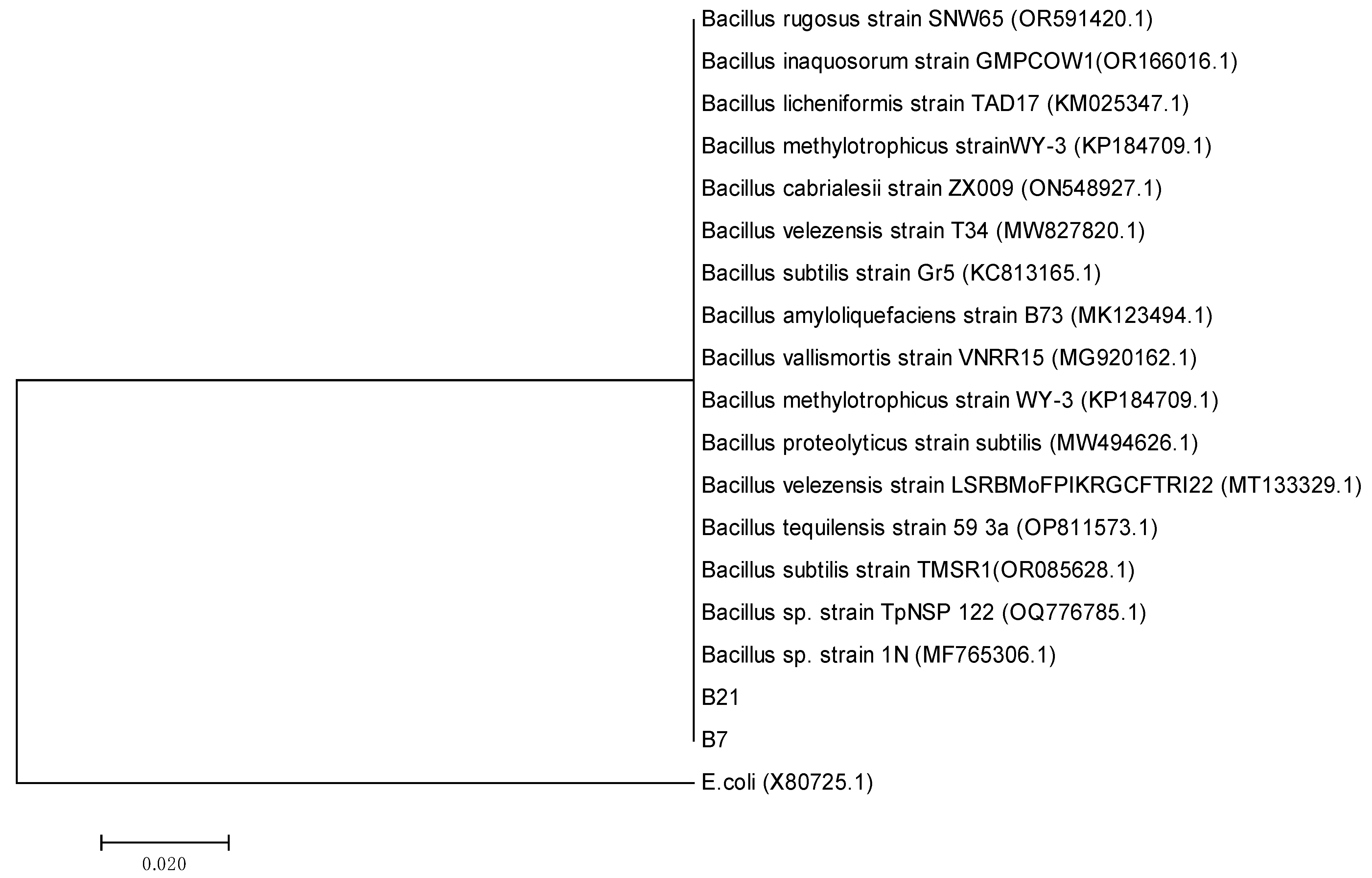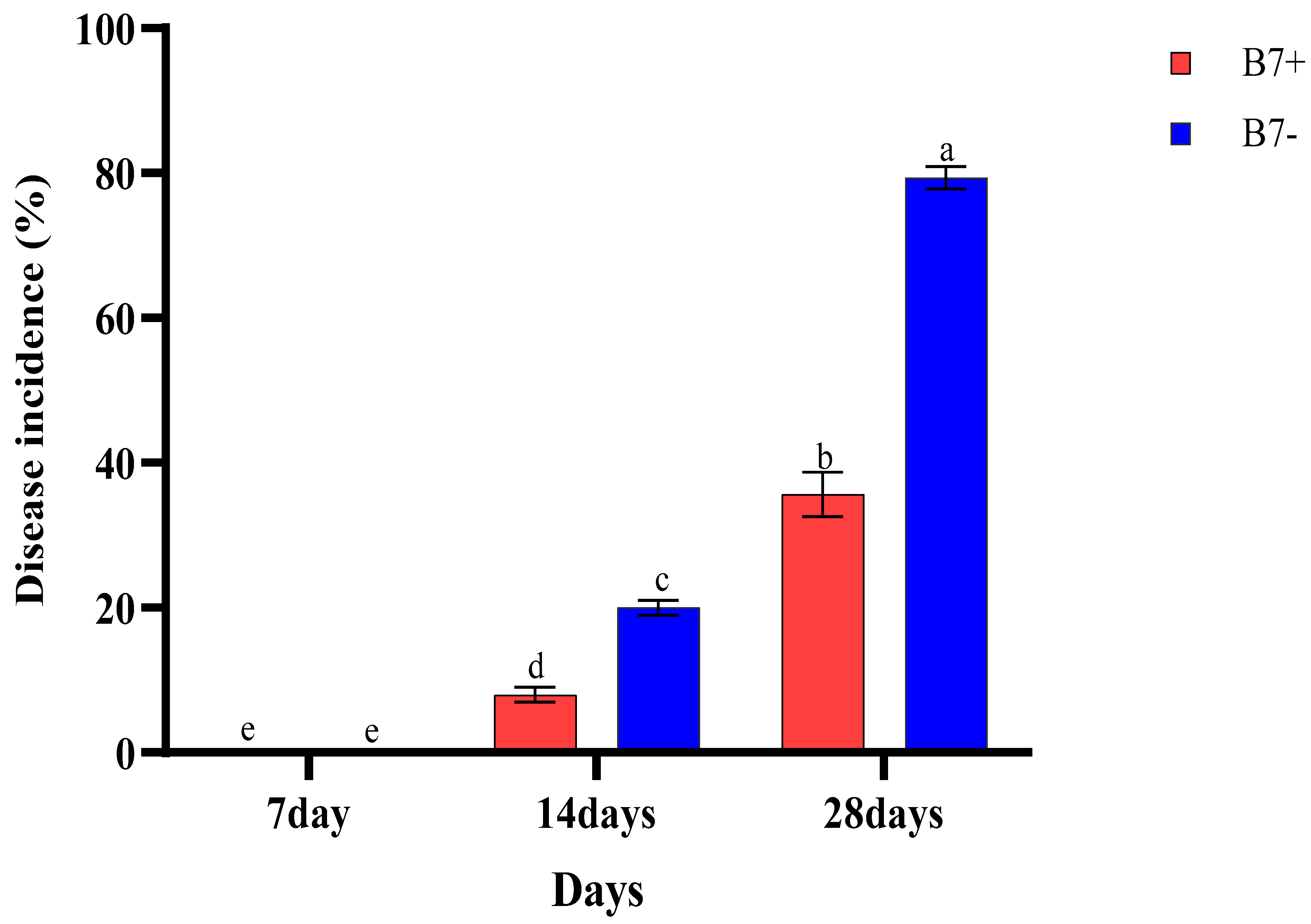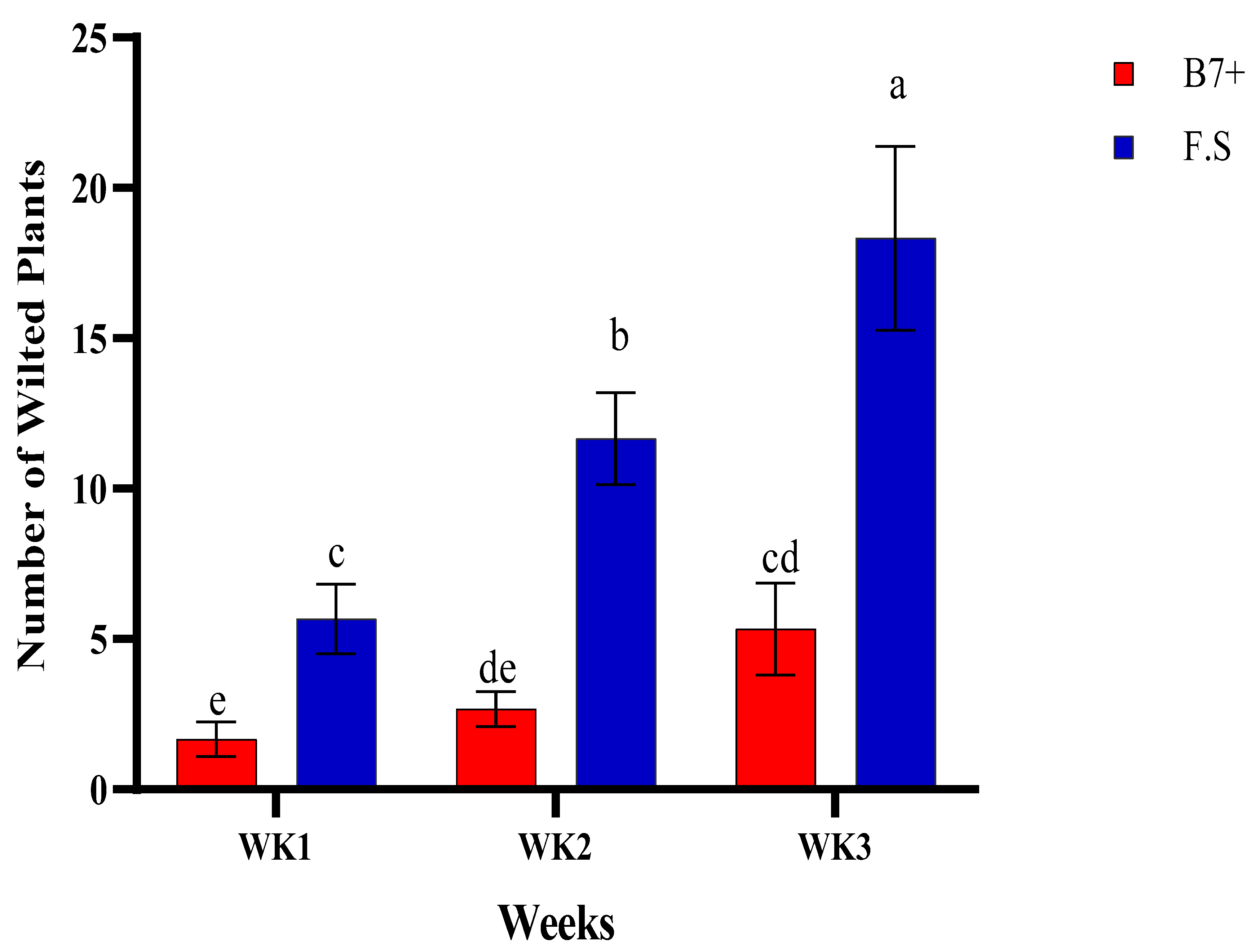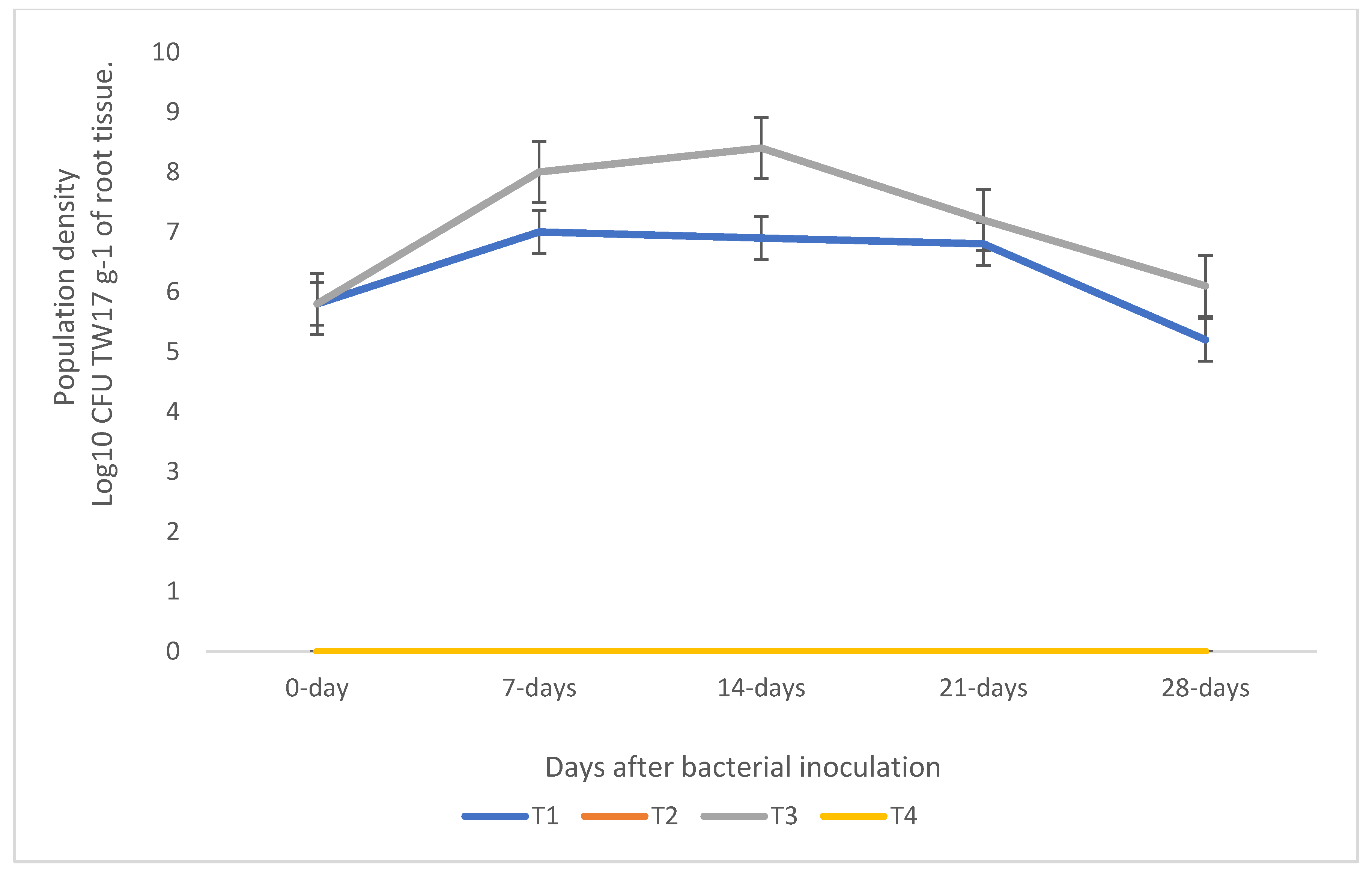1. Introduction
In Kenya, Agriculture remains a foundational pillar of Kenya’s economy, contributing approximately 21.8% to the national GDP [
1]. Within this sector, vegetable production plays a vital role in promoting food security and sustaining the livelihoods of smallholder farmers. Among the key vegetable crops, the common bean (
Phaseolus vulgaris L.) is of particular dietary and economic importance. Known for its edible dry seeds and green pods [
2], it is the second most consumed staple food in Kenya after maize, valued for its nutritional benefits, especially its high protein content and contribution to dietary diversity [
3].
Beyond the seeds and pods, common bean leaves are occasionally utilized as leafy vegetables or livestock fodder [
4]. Nutritionally, the crop is a rich source of protein, dietary fiber, thiamine, folate, and essential minerals such as iron and zinc nutrients commonly deficient in cereal- and root-based diets [
1,
2]. Additionally, common beans contain phytochemicals with analgesic and neuroprotective properties, further enhancing their health benefits [
1]. Their high fiber content supports gastrointestinal health, stabilizes blood glucose levels, and promotes satiety, thereby aiding in weight management [
5].
From an economic standpoint, common beans constitute a vital cash crop for Kenya’s smallholder farmers [
6], contributing significantly to household incomes and rural economic development [
7]. The beans are also exported to various international markets, where their distinctive flavor and quality have sustained high demand [
7]. However, domestic production frequently falls short of meeting this demand, leading to substantial imports from neighboring countries, including Uganda, Ethiopia, and Tanzania [
1].
This reliance on imports has coincided with heightened pest and disease incidence in bean production systems [
8]. Major insect pests include cutworms, bean flies, aphids, pod borers, whiteflies, red spider mites, and thrips, while important diseases affecting the crop comprise black root rot, damping-off, bean rust, Fusarium wilt, bacterial blight, and downy mildew [
9].
Soil infertility and increasing environmental stress have compounded these challenges, contributing to a 13.8% decline in bean yields over the past five years [
10]. Particularly devastating is root and stem rot, which affects between 50% and 70% of bean crops and is predominantly caused by
Fusarium solani [
11]. This soil-dwelling fungus poses a significant challenge due to its capacity to persist as chlamydospores, colonize decaying organic matter, and spread via runoff and contaminated plant residues [
12].
Symptoms of infection include irregular, light-brown lesions on the stem, taproot, and hypocotyl, which progressively darken and enlarge [
13,
14]. The pathogen typically enters through root wounds or natural openings, resulting in systemic infections that can cause yield losses of up to 70% [
15,
16]. These severe impacts underscore the pressing need for more effective and sustainable disease management strategies.
Control approaches for
F. solani have included both chemical and cultural methods. While seed treatment with synthetic fungicides such as prochloraz, bromuconazole, and benomyl has shown efficacy against related
Fusarium species [
17], concerns persist regarding fungicide resistance and adverse effects on non-target organisms. As a result, there has been a growing emphasis on integrated cultural practices, including crop rotation, improved sanitation, and the use of genetically diverse cultivars, to reduce disease pressure and enhance soil resilience [
18,
19]. Other approaches include adjusting the sowing density and timing, selecting appropriate soil types [
20], using resistant varieties or species mixtures [
21], and practicing selective weeding [
22].
Biological control offers a promising and sustainable alternative to conventional disease management approaches, including synthetic fungicides. It aligns well with environmentally conscious and pesticide-free agricultural systems. Among the most effective biocontrol candidates are strains from the
Bacillus genus, which have demonstrated strong antagonistic activity against
Fusarium species. Notably, Bacillus velezensis has shown potential in suppressing
Fusarium solani [
23], while
Bacillus subtilis strain CAS 32 has been reported to effectively control
F. solani-induced root rot in common beans [
24]. Overall, members of the
Bacillus genus are widely recognized for their capacity to mitigate Fusarium-related diseases in various crops [
25]. Additionally, the study by Guevara-Avendaño et al. [
26] reported that
Bacillus spp. strains enhance the suppression of
Fusarium wilt in radish. The antagonistic potential of Bacillus species against
Fusarium solani has been widely explored to evaluate their effectiveness as biocontrol agents and to gain insight into the underlying mechanisms of suppression [
27]. Both in vitro and in vivo experiments have been employed to assess the ability of
Bacillus strains to inhibit
F. solani and other pathogenic fungi, highlighting their broad-spectrum antifungal properties plant–pathogen interactions. These antagonistic effects are mediated through multiple mechanisms, including mycoparasitism, induction of systemic resistance in host plants, secretion of inhibitory secondary metabolites, stimulation of plant growth, competition for nutrients and ecological niches, and the production of cell wall–degrading lytic enzymes [
27,
28,
29,
30]. An emerging frontier in plant disease management involves exploring the microbial communities inhabiting Kenya’s extreme environments, particularly its soda lakes—Bogoria, Magadi, and Elementaita. These alkaline, saline ecosystems are known to host diverse extremophilic bacteria, as demonstrated by multiple studies investigating microbial populations in lake sediments, waters, and surrounding soils [
31,
32,
33,
34]. In a related investigation, Mutungi et al. [
35] identified endophytic microbes associated with shrub vegetation along the receding shores of Lake Bogoria, targeting their potential to suppress
Fusarium solani, a major pathogen of common beans in Kenya. These findings underscore the biocontrol potential of extremophilic bacteria from soda lakes in mitigating bean diseases. Among the promising candidates is
Bacillus tequilensis, an extremophile isolated from the hypersaline environment of Lake Bogoria. This species exhibits both remarkable salt tolerance and broad-spectrum antifungal activity, making it a strong candidate for the development of sustainable, environmentally friendly plant protection strategies. Accordingly, the present study focused on isolating and evaluating
Bacillus spp. from Lake Bogoria through both in vitro and in vivo assays to assess their efficacy as biocontrol agents against
F. solani in common bean (
Phaseolus vulgaris) production.
4. Discussion
The potential of microorganisms from soda lakes as biocontrol agents against phytopathogens has been previously highlighted by Wekesa et al. [
47]. Building on this concept, the current study investigated
Bacillus spp. isolates from Lake Bogoria for their antagonistic activity against
Fusarium solani, a major pathogen of common beans. Out of 30 bacterial isolates screened, 10 demonstrated varying degrees of mycelial growth inhibition. Notably, isolates B7 and B21 exhibited the highest antagonistic efficacy, each achieving inhibition rates exceeding 40%. These findings are consistent with those of Dugassa et al. [
50], who reported that the cell-free culture filtrates of
Bacillus spp. could suppress
Fusarium mycelial growth by up to 71.11%. The observed inhibitory effects in our study may be attributed to the production of cell wall–degrading enzymes (CWDEs), as previously documented by Nehra et al. [
28], who associated
Bacillus-mediated antagonism with enzymatic lysis of fungal cell walls. Additionally, the inhibition may result from the secretion of diffusible antimicrobial compounds that interfere with fungal growth and proliferation [
51].
The antagonistic interaction appeared to intensify between 48 and 72 h’ post-contact, suggesting inducible enzymatic responses during direct confrontation. Similar results were reported by Baard et al. [
25], who described the enzymatic degradation of pathogenic fungal cell walls by biocontrol microbes in direct physical association. Thus, the mycelial inhibition observed in this study likely results from both antibiosis and enzyme-mediated suppression, reinforcing the biocontrol potential of
Bacillus isolates from Lake Bogoria.
The results based on 16S rRNA; BLAST confirms the taxonomical identity of B21 as Bacillus subtilis subsp. Inaquosorum.
The isolate B7 demonstrated 97.5% sequence identity to known Bacillus species, suggesting it may represent a genetically distinct strain within the genus. Previous studies have documented the presence of Bacillus spp. and other Gammaproteobacteria in extreme environments, including soda lakes [
52], with Gammaproteobacteria frequently identified as a dominant class. The sequence divergence observed in isolate B7 could reflect adaptive evolution to the harsh physicochemical conditions of Lake Bogoria, highlighting the potential of underexplored extreme environments as reservoirs for novel microbial strains with agronomic applications.
Following initial screening, isolate B7 was subjected to further molecular characterization to investigate the presence of genes associated with antibiosis. PCR amplification revealed the presence of several biosynthetic genes, including
hcn,
plt,
prn,
phz, and
phl, which are involved in the production of hydrogen cyanide, pyoluteorin, pyrrolnitrin, phenazine, and 2,4-diacetylphloroglucinol (2,4-DAPG), respectively [
53,
54]. Notably, previous work by Kumar et al. [
55] has reported the production of pyoluteorin by
Bacillus spp., supporting our findings.
We also evaluated the production of lytic enzymes—specifically chitinase and chitosanase—which are key in fungal cell wall degradation [
56]. Enzymatic assays revealed both exochitinase and endochitinase activity at 24-, 48-, and 72-h post-confrontation in the treatment with B7 and
F. solani. Endochitinase cleaves internal bonds in the chitin polymer, creating substrates for exochitinase to further degrade the fungal cell wall. As chitin and its derivative chitosan are major structural components of the cell walls in filamentous fungi [
57], degradation by bacterial chitosanase—alongside chitinase—plays a critical role in hyphal lysis [
58]. The enzymatic action likely contributed to the observed reduction in hyphal branching and morphological abnormalities in
F. solani, as visualized under light microscopy. Similar antagonistic effects have been reported by Báez-Astorga et al. [
41] in
Bacillus interactions with
Rhizoctonia solani.
In the in vivo experiment, root colonization by strain B7 was confirmed using a culture-based approach. A higher recovery of fluorescent
Bacillus colonies was recorded from roots treated with B7 compared to untreated controls, indicating successful root colonization even in the presence of
F. solani. This observation is consistent with the findings of Bakki et al. [
59], who emphasized the importance of microbial persistence for effective disease suppression. Colony counts from root samples confirmed that B7 maintained viable populations above the efficacy threshold required for biocontrol activity.
Moreover, disease incidence assessments revealed that plants treated with B7 exhibited significantly lower rates of wilting compared to those inoculated with
F. solani alone. This protective effect is likely mediated through both direct antagonism and the induction of host defense responses, a well-recognized mode of action in plant-associated biocontrol bacteria [
59].
In conclusion, Bacillus spp. isolated from Lake Bogoria exhibited potent antagonistic activity against F. solani, both in vitro and in vivo. Strain B7, in particular, demonstrated multiple biocontrol mechanisms, including production of antifungal secondary metabolites, lytic enzymes (chitinase and chitosanase), and robust root colonization. These attributes, combined with its adaptation to extreme environmental conditions, position B7 as a promising candidate for biocontrol applications, especially in arid and semi-arid lands (ASALs) where traditional biocontrol agents often fail to perform effectively.
Despite the promising results, this study is limited by the absence of field trials, which are essential to validate B7’s efficacy under natural agronomic conditions. Additionally, whole-genome sequencing of strain B7 was not conducted, which would be critical for confirming its novelty and biosynthetic potential. Nevertheless, the study’s strengths lie in its integrative approach—combining environmental microbiology, gene profiling, enzymatic assays, and in vivo evaluation—culminating in the identification of a highly promising biocontrol strain.
The findings support the broader potential of extremophilic microorganisms from soda lakes as sustainable alternatives to chemical fungicides. Strain B7, with its demonstrated antifungal activity, root colonization capacity, and environmental resilience, offers a valuable opportunity for advancing climate-smart agriculture. Future research should prioritize field validation and genomic analysis to fully harness the potential of such extremophile-derived biocontrol agents for use in Kenyan agriculture and beyond.












